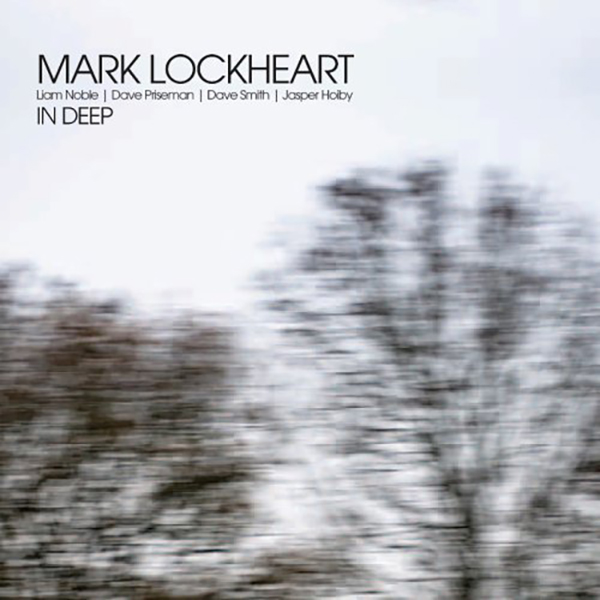
by Ian Mann
May 26, 2009
/ ALBUM
A strong candidate for Lockheart's best work to date.
As a member of two of the most seminal British “jazz” bands of recent times in Loose Tubes and Polar Bear saxophonist Mark Lockheart is assured of his place in musical history. When you also consider his role as a member of the eclectic and consistently engaging Perfect Houseplants plus several excellent recordings under his own name it becomes clear that Lockheart is very much an under appreciated talent in his own country.
Lockheart’s latest release on the enterprising Cardiff based label Edition Records is a good summation of his solo career to date. It combines the arranging skills demonstrated on his large ensemble projects “Through Rose Coloured Glasses” (1998) and “Imaginary Dances” (2002) with the more pared down approach of the quartet recording “Moving Air”(2005), an album reviewed elsewhere on this site.
No longer exactly in the first flush of youth Lockheart continues to enjoy working with younger musicians as his role in Polar Bear demonstrates. “In Deep” finds him working with two members of the emergent Loop Collective in drummer Dave Smith and bassist Jasper Hoiby. In a quintet line up the personnel is completed by Liam Noble, now considered to be one of Britain’s finest pianists and trumpeter Dave Priseman, a former member of Lockheart’s eleven piece Scratch Band.
“In Deep” showcases the increasing maturity of Lockheart’s writing but crucially also provides sufficient room for improvisation and musical self expression by the members of this highly talented ensemble.
The brief “Stairway” serves as an introduction with Lockheart’s breathy tenor accompanied only by Smith’s skittering drums. Occasionally the saxophonist sounds as if he’s going to break into a standard and I’d guess that this teasing snippet was freely improvised.
The lengthy “Surfacing” introduces the other voices of the band and is a fine piece of writing with an arresting theme. The piece constantly ebbs and flows moving from the quietest of openings through a passage of bright, melodic ensemble playing to a dazzling, quirkily percussive solo from the remarkable Noble. Lockheart follows on tenor, his tone brisk and authoritative, fully justifying the Michael Brecker comparison made in the album’s press release. Hoiby’s brilliant bass playing has been commented on in connection with “Green Delay”, the recent release by his own band Phronesis. His solo here, superbly supported by Smith demonstrates the same power,dexterity and melodic sense that he brings to his own work. Not that “Surfacing” should be seen as merely a string of solos, the quality of the tune and the tightness of the ensemble playing make for something far more substantial. An impressive start.
“Golden People"is more reflective with Noble demonstrating the more lyrical side of his playing. Lockheart’s feathery tone on tenor and Priseman’s muted trumpet maintain the air of delicacy with the rhythm team providing suitably subtle accompaniment. This quiet masterpiece is an excellent example of the art of mood building.
The quietly insistent “Long Way Gone” features the exquisite horn interplay of Lockheart and Priseman above Noble’s piano undertow. There are moments when it reminds me of the kind of thing Abdullah Ibrahim’s Ekaya might have attempted, which is praise indeed.
“Undercovers” is something of a feature for Priseman who blows slippery muted trumpet above the urgent rhythmic pulse created by Smith and Hoiby. It’s relatively brief but very effective.
“Believe It Or Not” marks a return to the episodic approach. It opens with Hoiby’s bass before passing through a lengthy, pensive passage for unison horns into a more “free” central section full of ghostly horn flutterings, glacial piano and shadowy percussion. Eventually the group pick up the theme again to conclude another fine example of mood setting.
The title “Not In My Name” offers a clue as to Lockheart’s political sympathies. As he mentioned in his recent Radio 3 interview Loose Tubes used to protest about nuclear weapons back in the day and the views of the individual members haven’t changed that much in principle, they’ve merely moved with the times. The music itself is at first declamatory with squalling sax and trumpet, followed by a pensive central section for Noble’s piano, before the group take up the cudgels of protest again. The urgency of the drum and bass work in the appropriate places provides the necessary impetus. Like “Louisiana”, the stand out track on guitarist Phil Robson’s excellent “Six Strings And The Beat Album” this an item that falls into the category of “protest song without words”.
After this a pause for breath with Noble’s beautiful solo piano piece “Falling” which mixes serenity with a vague sense of unease.
“Sand Into Gold” contains wonderful passages of ensemble playing with Lockheart, Noble and Priseman subsequently taking the solo honours above Smith’s driving rhythms. All three are fluent, imaginative and inventive.
“Snakeout” is a brief improvised passage for bass, drums and piano and “Nutter” a brief, riff driven burst of concentrated energy by the whole group. The horns, whether solo or in tandem are bright and punchy as Smith drums up a storm behind.
The relaxed and attractive"Sunday Soon” ends the album on a more considered note. Hoiby’s astonishingly nimble bass initially comes to the fore with Lockheart’s pure toned tenor and Noble’s delicate touch at the piano also showing up well. Here as elsewhere Smith’s drumming is the perfect foil adding just the right dash of impetus and colour to the proceedings.
“In Deep” strikes just the right balance between discipline and freedom and Lockheart’s attractive and memorable themes make each track a unique adventure. The album maintains the consistently high standards we have come to expect from one of the UK’s most talented musicians and is a strong candidate for his best work to date.
blog comments powered by Disqus